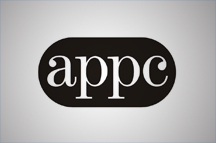 The Association of Professional Political Consultants (APPC) has praised the Lobbying Registrar Alison White for her “rapid and high level of engagement”, but has also cautioned against rushing the introduction of the lobbying register.
The Association of Professional Political Consultants (APPC) has praised the Lobbying Registrar Alison White for her “rapid and high level of engagement”, but has also cautioned against rushing the introduction of the lobbying register.
The APPC has published its response to the Lobbying Registrar’s Consultation on the Scope of Guidance for the Register of Consultant Lobbyists. In its response, the APPC says that there remain “significant areas lacking clarity”, and that whilst the infrastructure of the new registration system can be established pre-election, the “registration of activity should be deferred until after the general election”.
The document, which can be found in full on the APPC’s website, also expresses concerns about the impact of registration costs, saying that “the cost of the register has the potential to encourage less transparency in lobbying than at present”, and asks for further clarity from White on what she expects the cost of registration in the first year to be.
 Iain Anderson, Chairman of the APPC said: “We welcome the Registrar’s efforts to engage constructively with the lobbying industry. However, fully implementing the register before the election is looking like a difficult task given the ongoing lack of clarity on some fundamental issues and the need for a pilot period to ensure the industry is able to participate confidently in this new system and any glitches can be ironed out.
Iain Anderson, Chairman of the APPC said: “We welcome the Registrar’s efforts to engage constructively with the lobbying industry. However, fully implementing the register before the election is looking like a difficult task given the ongoing lack of clarity on some fundamental issues and the need for a pilot period to ensure the industry is able to participate confidently in this new system and any glitches can be ironed out.
“That’s why today we strongly urge the Registrar to focus on establishing the infrastructure necessary to operate a register and ensuring the rules governing the new system are clear to all potential registrants as an absolute priority.
“In my view this means that in all likelihood registration should commence after the general election, to avoid the new system being rushed in, with all the problems that could cause. The benefits of proceeding with caution rather than rushing through a new system would include allowing more certainty for both the Registrar and potential registrants on key issues, like the number of registrants, and crucially the costs. Indeed, the Registrar must provide more clarity on what she expects the costs for the first year of registration will be.
“The Registrar’s proposal encouraging registrants to disclose the identity of the Minister they communicate with is likely to create a ‘pick and mix’ approach which would not enhance transparency.”
Selected excerpts from the APPC’s consultation response:On the possibility of launching a register pre-election: “The likely lack of registrable lobbying activity in the period following the dissolution of Parliament and leading up to and surrounding the General Election…will mean that most APPC members and others will not be required to join the register until later in 2015.” On the issues still lacking clarity: “Specific issues include circumscribing the role of a constituency MP, even if that MP is also a Minister.” On the issue of whether registration could happen ahead of an organisation carrying out specific lobbying activity: “The APPCs current system of requiring declaration of lobbying activity which has actually ‘taken place’ in the previous quarter is the best way of ensuring accurate declaration. Pre-declaration about events which may or may not take place is likely to cause confusion among registrants and the public scrutinising the register.” |












